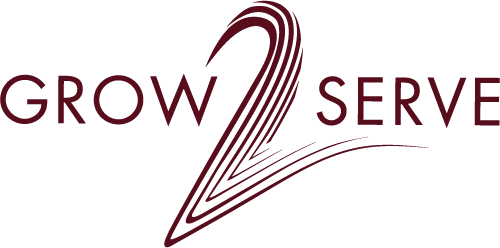How people learn
What do you mean by… transformative learning?
We have shared with you way more than you’d probably ever want to know about Grow2Serve on this page. I do realize that some of you, who are perfectionists and detail freaks (like me) will pour over every entry and possibly every word we’ve used explaining our vision, mission, values, measures, faith, history, strategy and learning philosophy. As you go, you’ll surely find some words which will prompt you to say to yourself… “self, I wonder what they mean by this?” And so, with this in mind, this news post is one in a series of attempts to unpack each of the “meaning-packed” italicized words that you’ll find on the about us page at grow2serve.com.
So… transformative learning. For some, this one may be clear to you. For others, putting transformative and learning together may be new to you. The two words seem to speak for themselves. Let’s start with the adjective transformative. When we think of learning, it can be fun. It can be stimulating. It can even contribute to relationship-building. Those are all great things, and those that seek to help others learn should use these kinds of measuring sticks as they design and assess the quality of learning events and tools that they create. But the first key idea we’re trying to get at with this phrase, transformative learning, is that the measuring stick that really matters is this: does the process of learning actually change a person? Is it transformative? Do we, as learners, walk away from a learning module as a better person, a person stronger in belief, a person with a change of attitude or ability, a person with a new resolve to be and act differently? Both the educator and the learner have roles to play in transformative learning. The educator facilitates learners in becoming aware and critical of their assumptions that may be limiting or distorting their views. Critical reflection is essential in the process of transforming learners. The learners must critically examine their views, be open to alternatives, and consequently change the way they see things and transform how they make meaning. We hope that all the learning tools that we produce or are associated with at Grow2Serve will be characterized by being transformative.
So why the word learning? Not teaching. Not training. Not educating. It might just be a matter of word preferences, but learning evokes within me pictures and feelings of transformation while some of those other words lead my mind and heart more towards a perspective that is nearer to collecting. When I seek to learn, I’m submitting myself to the possibility of change. And change (the good kind) positions me to experience one more step of the lifelong refinement process that God is completing in me.
Transformative learning. Is it the only way to go? You can decide that. But it seems like many of us in ministry do invest much time and energy in activities that are meant to be part of a learning process—for ourselves and for others. And as wise stewards of what God has entrusted to us, we should probably constantly be considering “is what I’m putting in worthy of what is coming out the other side?”


